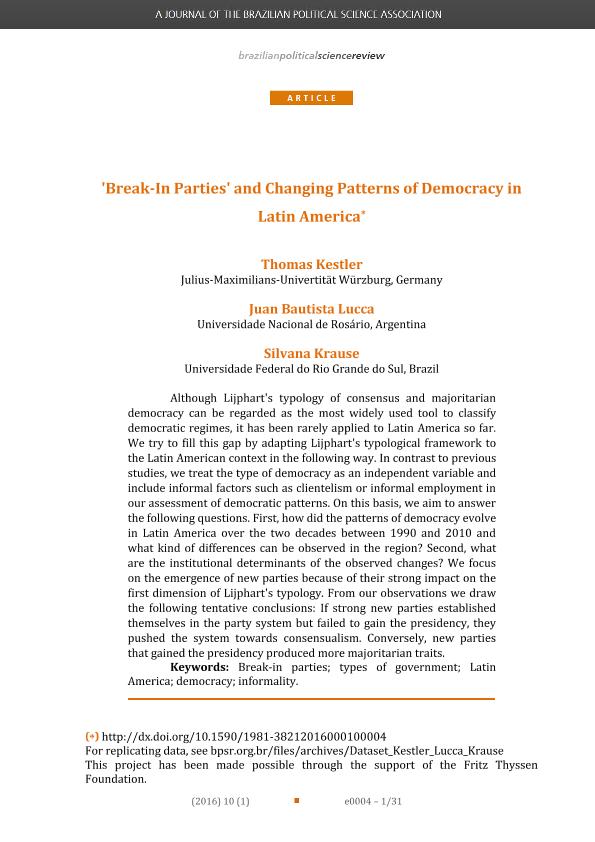Artículo
'Break-In Parties' and Changing Patterns of Democracy in Latin America
Fecha de publicación:
02/2016
Editorial:
ABCP
Revista:
Brazilian Political Science Review
ISSN:
1981-3821
Idioma:
Inglés
Tipo de recurso:
Artículo publicado
Clasificación temática:
Resumen
Although Lijphart's typology of consensus and majoritarian democracy can be regarded as the most widely used tool to classify democratic regimes, it has been rarely applied to Latin America so far. We try to fill this gap by adapting Lijphart's typological framework to the Latin American context in the following way. In contrast to previous studies, we treat the type of democracy as an independent variable and include informal factors such as clientelism or informal employment in our assessment of democratic patterns. On this basis, we aim to answer the following questions. First, how did the patterns of democracy evolve in Latin America over the two decades between 1990 and 2010 and what kind of differences can be observed in the region? Second, what are the institutional determinants of the observed changes? We focus on the emergence of new parties because of their strong impact on the first dimension of Lijphart's typology. From our observations we draw the following tentative conclusions: If strong new parties established themselves in the party system but failed to gain the presidency, they pushed the system towards consensualism. Conversely, new parties that gained the presidency produced more majoritarian traits.
Palabras clave:
Break-In Parties
,
Latin America
,
Democracy
,
Informal Institutions
Archivos asociados
Licencia
Identificadores
Colecciones
Articulos(CCT - ROSARIO)
Articulos de CTRO.CIENTIFICO TECNOL.CONICET - ROSARIO
Articulos de CTRO.CIENTIFICO TECNOL.CONICET - ROSARIO
Citación
Kestler, Thomas; Lucca, Juan Bautista; Krause, Silvana; 'Break-In Parties' and Changing Patterns of Democracy in Latin America; ABCP; Brazilian Political Science Review; 10; 1; 2-2016; 1-31
Compartir
Altmétricas




